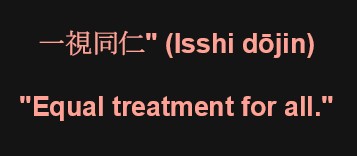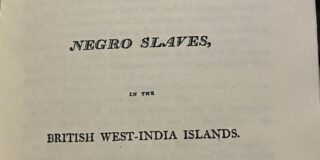

Abstract
This paper critically examines the 2025 report by Jillian Segal AO, Australia’s Special Envoy to Combat Antisemitism, focusing on her 49 recommendations aimed at addressing a significant rise in antisemitic incidents following the October 2023 Hamas attack on Israel and subsequent Gaza conflict. The analysis situates Segal’s proposals within broader debates concerning minority representation, democratic freedoms, and political advocacy, while also scrutinising the controversy surrounding conservative Jewish opposition to the 2023 Aboriginal Voice to Parliament referendum and the implications of Segal’s husband’s financial ties to the conservative lobby group Advance. Drawing on parliamentary records, community responses, and political discourse, the paper offers a comprehensive, balanced evaluation of the potential benefits and drawbacks of Segal’s recommendations and their wider societal impact.
Introduction
In response to an alarming 300-700% surge in antisemitic incidents in Australia following the Hamas attack on Israel in October 2023, the Australian government appointed Jillian Segal AO as Special Envoy to Combat Antisemitism in July 2024. After extensive consultations, Segal presented a report to Parliament in July 2025 containing 49 recommendations designed to counter antisemitism through institutional accountability, legal reforms, education, and media oversight. These recommendations, which include adopting the International Holocaust Remembrance Alliance (IHRA) definition of antisemitism, cutting funding to institutions failing to address antisemitism, and enhancing hate speech laws, have sparked intense debate.
Critics argue that Segal’s recommendations risk privileging Jewish safety over other marginalised groups, potentially infringing on democratic freedoms such as free speech and academic autonomy. Further complicating the discourse are the conservative Jewish community’s opposition to the Aboriginal Voice to Parliament referendum and Segal’s husband’s financial support for Advance, an ultra-conservative lobby group, raising questions about impartiality. This paper critically examines Segal’s recommendations within these intersecting contexts, assessing their implications for minority representation, democratic principles, and political advocacy.
Jillian Segal’s Recommendations: Scope and Context
Segal’s report emerged from nine months of consultation with Jewish community organisations amid rising antisemitic incidents, including synagogue arsons, vandalism, harassment, and online hate campaigns. The recommendations aim to enhance accountability, education, and legal frameworks, summarised as follows:
1. Funding Restrictions: Government funding to universities, cultural institutions, and charities could be withheld if they “facilitate, enable, or fail to act against antisemitism.” A university “report card” would assess efforts, with a judicial inquiry possible by 2026 if progress is insufficient.
2. IHRA Definition Adoption: Mandating the IHRA definition of antisemitism across public institutions, which includes examples such as denying Israel’s right to exist or attributing collective responsibility to Jews for Israeli government actions.
3. Hate Speech and Visa Laws: Strengthening legislation against antisemitic conduct, including vilification and “intimidating protest activity,” and introducing visa screening to prevent entry of individuals with antisemitic views.
4. Media Monitoring: Empowering the envoy to monitor media for “fair and balanced” coverage, particularly on Middle East issues, and promoting Jewish cultural contributions.
5. Education Reform: Embedding Holocaust and modern antisemitism education in curricula and fostering interfaith programs to promote social cohesion.
Segal contends that antisemitism threatens not only Jewish Australians, but the democratic fabric of the nation. Her approach is informed by international frameworks like the European Union’s 2021 Strategy on Combating Antisemitism, blending preventive education with punitive measures.
Situating Segal’s Recommendations in Broader Debates
A. Minority Representation
Segal’s recommendations highlight the tension between addressing antisemitism specifically and adopting an inclusive approach to minority rights. The appointment of separate envoys for antisemitism and Islamophobia reflects a segmented approach to racism, which some argue fosters competition among minority groups rather than solidarity.
Critics from within the Jewish community, notably the Jewish Council of Australia (JCA), argue that Segal’s plan “entrenches selective approaches to racism that serve political agendas,” neglecting other pressing issues such as Islamophobia and anti-Palestinian racism. Since October 2023, these forms of racism have also increased, underscoring the need for comprehensive anti-racism strategies.
The IHRA definition is particularly controversial. UN Special Rapporteur Ben Saul and Greens Senator David Shoebridge argue that the definition’s broad framing conflates legitimate criticism of Israeli policies with antisemitism, potentially suppressing Palestinian voices and stifling political discourse. Conversely, mainstream Jewish organisations such as the Executive Council of Australian Jewry (ECAJ) endorse the IHRA definition for its clarity in identifying antisemitic tropes.
The emphasis on Jewish safety raises concerns about equitable attention to other marginalised groups, such as Aboriginal and Torres Strait Islander peoples and Muslim Australians. The Australian Human Rights Commission (AHRC), bypassed in favour of a special envoy, could have provided a more holistic framework to address all forms of racism. Lawyer Josh Bornstein argues that privileging antisemitism-specific measures risks alienating other minorities and fuelling inter-community tensions.
B. Democratic Principles
Segal’s recommendations have generated apprehension regarding their impact on democratic freedoms, particularly freedom of expression and assembly. Amnesty International Australia warns that the proposed measures are “sweeping, vague, and repressive,” potentially curtailing fundamental rights enshrined in international law.
The proposal to defund universities and cultural institutions for failing to combat antisemitism is criticised as coercive, undermining institutional autonomy. Max Kaiser of the JCA argues that such funding cuts risk ideological conformity and echo authoritarian tactics.
Adopting the IHRA definition is contentious because it may criminalise legitimate academic and political discourse critical of Israel. Greg Barns of the Australian Lawyers Alliance cautions that equating criticism of Israel with antisemitism threatens free speech, especially on university campuses. Segal maintains that the IHRA definition distinguishes between legitimate criticism and antisemitic rhetoric, but this nuance is disputed.
Media monitoring provisions raise fears of censorship. The Australian Broadcasting Corporation (ABC) defends its independent complaint system, resisting external oversight. Empowering the envoy to defund institutions bypasses parliamentary and judicial checks, risking authoritarian overreach.
Existing laws strengthened in 2024, such as bans on Nazi symbology and racial vilification, have proven effective. For example, a recent court ruling penalised a Muslim cleric for antisemitic remarks, demonstrating the efficacy of current frameworks. Prime Minister Anthony Albanese’s cautious response to Segal’s recommendations reflects awareness of these democratic tensions, emphasising the need for further debate.
C. Political Advocacy
Segal’s recommendations are deeply intertwined with political advocacy, notably her pro-Israel stance as former ECAJ president. In 2023, she condemned Labor’s calls for a ceasefire in Gaza and criticised Israel’s hospital attacks, aligning with conservative Jewish advocacy groups.
The Australian Jewish Association (AJA) supports some recommendations, but expresses scepticism about their implementation under the Albanese government, suspecting a balancing act that may include policies perceived as hostile to Israel. This politicisation complicates Segal’s role as an impartial envoy. The JCA accuses her of prioritising a pro-Israel narrative over inclusive anti-racism efforts, arguing that emphasis on the IHRA definition and media monitoring serves to suppress dissent rather than combat hate holistically.
Labor Friends of Palestine and former Senator Doug Cameron urge rejection of the IHRA definition to protect criticism of Israel’s actions in Gaza, illustrating the perception that Segal’s plan advances a political agenda. Attempting to navigate these tensions, Albanese appointed an envoy for Islamophobia alongside Segal. However, his reluctance to fully endorse Segal’s plan highlights the challenge of addressing antisemitism without alienating other groups or appearing partial.
Conservative Jewish Opposition to the Aboriginal Voice
The 2023 referendum proposing constitutional recognition of Indigenous Australians through a permanent advisory Voice to Parliament was rejected by 60% of voters. Some conservative Jewish leaders, particularly aligned with the ECAJ, opposed the Voice, joining groups like Advance in a “No” campaign. This opposition has sparked accusations of double standards, given Jewish advocacy for antisemitism protections.
A. Nature of Opposition
While the ECAJ did not formally oppose the Voice, individual conservative Jewish leaders expressed concern that it would create “divisive” racial distinctions. These arguments mirrored Advance’s rhetoric, which portrayed the Voice as elitist and undermining equality under the law.
The AJA similarly argued that special treatment for one group threatens national unity, echoing Advance’s opposition to cultural practices such as Welcome to Country ceremonies. This stance contrasts sharply with Jewish advocacy for targeted antisemitism measures. Critics, including the JCA, argue that conservative Jewish groups’ support for Jewish-specific protections while opposing Indigenous representation reflects selective advocacy. Max Kaiser of the JCA calls for addressing “all forms of racism,” warning that prioritising Jewish safety over Indigenous rights fuels division.
B. Accusations of Double Standards
The perceived inconsistency – demanding protections for Jewish Australians while opposing constitutional protections for Indigenous Australians – has drawn widespread criticism. Advance’s campaign against the Voice, which claimed it would divide the nation by race, parallels criticisms of Segal’s antisemitism plan by those who see it as isolating Jewish issues from broader anti-racism efforts. Former NSW Premier Bob Carr highlighted this hypocrisy, noting that Segal’s husband’s funding of Advance, which vilified Indigenous and Palestinian causes, undermines her impartiality.
Indigenous advocates, supported by Amnesty International, emphasise that combating racism requires solidarity across communities. The rejection of the Voice by some Jewish leaders, juxtaposed with advocacy for antisemitism-specific measures, risks alienating Indigenous Australians and reinforcing perceptions of selective justice. Advance’s anti-immigration and anti-Palestinian rhetoric mirrors exclusionary dynamics that conservative Jewish groups claim to oppose when targeting Jews.
C. Community Responses
Mainstream Jewish organisations such as the ECAJ and Zionist Federation of Australia (ZFA) focus on supporting Segal’s antisemitism plan, largely avoiding the Voice debate post-referendum. Conversely, progressive Jewish groups including Jewish Voices of Inner Sydney, criticise Segal’s recommendations as potentially exacerbating antisemitism by alienating other minorities, aligning with Indigenous advocates calling for unified anti-racism efforts.
The divide within the Jewish community – between conservative pro-Israel groups and progressive anti-Zionist ones – reflects broader societal debates about equitable minority rights. The Voice controversy underscores the need for consistent advocacy across marginalised groups. Conservative Jewish leaders argue their opposition to the Voice is based on equality principles, but critics contend their support for antisemitism-specific measures reveals selective application, fuelling distrust and complicating solidarity.
Advance and the Implications of Segal’s Husband’s Association
The revelation that Segal’s husband, John Roth, donated $50,000 to Advance via the Henroth Discretionary Trust in 2023-24 has raised questions about the legitimacy of her recommendations. Advance, formed in 2018, is known for campaigns against the Aboriginal Voice, immigration, and pro-Palestinian activism, often employing inflammatory rhetoric.
A. Advance’s Political Influence
Advance’s campaigns target Labor, the Greens, and progressive policies, including renewable energy and Indigenous cultural practices. Its 2023-24 donations totalled $15.6 million, with Henroth’s contribution among the largest. The group’s contributors include former Liberal Prime Minister Tony Abbott and Senator Jacinta Nampijinpa Price, aligning it with conservative politics.
Critics, including the JCA and Labor Friends of Palestine, argue Advance’s divisive rhetoric, such as labelling immigrants, “rapists, paedophiles, and murderers,” undermines social cohesion, contradicting Segal’s stated goals.
Reports branding Segal and Roth as “major funders” of Advance have intensified scrutiny, prompting calls for her resignation from groups like the Lebanese Muslim Association and Australia Palestine Advocacy Network, who view her role as compromised.
B. Implications for Segal’s Legitimacy
Segal has distanced herself from the donation, stating no involvement or control over her husband’s finances. In her defence, Home Affairs Minister Tony Burke dismissed criticism as “misogynistic” while condemning Advance’s rhetoric. Nonetheless, the donation raises legitimate questions about appointment due diligence. Subsequently, Greens Senator Mehreen Faruqi called for transparency regarding background checks to ensure impartiality.
The association fuels perceptions that Segal’s recommendations reflect a conservative, pro-Israel agenda rather than neutral anti-antisemitism efforts. Her emphasis on the IHRA definition and media monitoring aligns with Advance’s anti-Palestinian stance, as reflected in its public statements questioning Palestinian settlement programs.
Max Kaiser of the JCA argues Segal’s past statements linking antisemitic attacks with Palestinian solidarity protests reflect bias undermining her credibility.
C. Political and Community Fallout
The donation controversy has polarised responses. The ECAJ declined to comment on Advance, while the ZFA and AJA support Segal’s recommendations, emphasising antisemitism’s urgency. Progressive Jewish groups and Labor MPs, especially Labor Friends of Palestine, urge rejecting contentious proposals like funding cuts and IHRA adoption, advocating a National Anti-Racism Framework addressing all racism inclusively.
Facing such lukewarm responses, the government remains cautious. Albanese commits to “working constructively” with Segal, but avoids full endorsement, reflecting internal Labor divisions. Treasurer Jim Chalmers and Education Minister Jason Clare emphasise education and prevention over punitive measures, indicating a wariness regarding democratic implications.
Opposition leader Sussan Ley supports Segal’s appointment and plan, demanding swift implementation, indicating bipartisan agreement on combating antisemitism, but differing on methods.
Analysis and Broader Implications
Segal’s recommendations respond to a genuine crisis, with antisemitic incidents including physical attacks and online harassment instilling fear in Jewish communities. However, implementation risks deepening community divisions and undermining democratic principles. The IHRA definition, while clarifying antisemitic tropes for some, is viewed by others as a tool to suppress dissent, particularly among Palestinian Australians and progressive Jews critical of Israel.
Funding cuts and media monitoring threaten institutional autonomy and free expression, evoking authoritarian concerns raised by Amnesty International and the JCA. Conservative Jewish opposition to the Aboriginal Voice, juxtaposed with advocacy for antisemitism-specific measures, reveals selective minority rights approaches.
Advance’s anti-Indigenous and anti-Palestinian campaigns exacerbate social division and accusations of hypocrisy. Segal’s husband’s donation to Advance, though separate from her actions, further erodes trust in her impartiality, critical for an envoy’s credibility.
A balanced approach would integrate education and prevention measures, such as Holocaust curriculum enhancements and interfaith programs, within a broader anti-racism framework, as advocated by the AHRC and Labor Friends of Palestine. Strengthening existing legal frameworks and fostering community dialogue could address antisemitism without isolating minorities or eroding democratic freedoms.
The Albanese government faces a pivotal choice: selectively adopt Segal’s plan to avoid authoritarian overreach or risk alienating Jewish communities by rejecting it outright. Yet a unified, inclusive anti-racism strategy prioritising equity and cohesion offers the most sustainable path forward.
Conclusion
Jillian Segal’s 2025 recommendations to combat antisemitism confront an urgent societal issue, but are fraught with complexities touching on minority representation, democratic freedoms, and political advocacy. While aiming to protect Jewish Australians, the focus on Jewish-specific protections risks alienating other marginalised groups and fuelling perceptions of selective justice. Proposals such as funding cuts and media monitoring pose threats to democratic principles like free speech and institutional autonomy. Segal’s pro-Israel advocacy and her husband’s financial support for Advance compound concerns about impartiality essential for her role as envoy. Most notably, conservative Jewish opposition to the Aboriginal Voice highlights double standards that complicate efforts to foster solidarity among marginalised communities.
This analysis, grounded in parliamentary records, community responses and political discourse, underscores the challenge of balancing effective antisemitism prevention with democratic values and inclusive minority representation. A comprehensive anti-racism framework, leveraging existing laws and promoting dialogue, presents the most viable approach to combat antisemitism while advancing equity and unity across Australia’s diverse communities.



